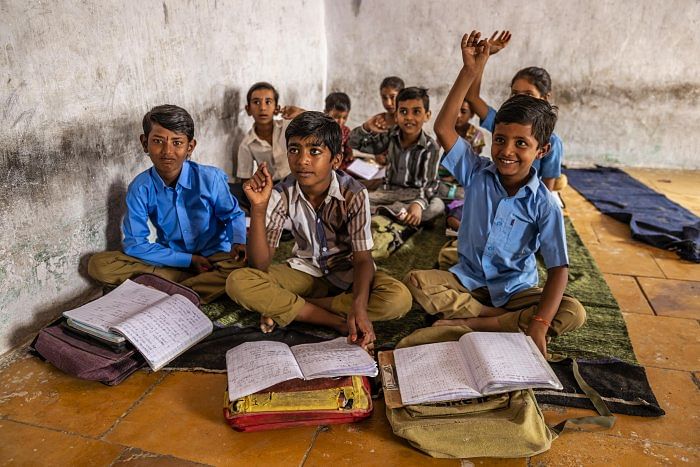
Stories from the Upanishads, Vikram-Betaal and Panchatantra should be used in our school education system to impart education to children, the draft National Curriculum Framework recommends. The draft, which has been made public for stakeholder feedback by the education ministry, says that students should also have an in-depth understanding of Indian knowledge systems.
India’s contributions in the various fields of knowledge must be incorporated in the curricula in the manner in which they were discovered to maintain historical veracity, and because “holistic nature of the traditional Indian approach leads to a deeper understanding”, the framework says. The framework also asks for the inclusion of toys, songs, dance and games as methods of teaching children.
The Upanishads, the draft says, can help highlight the importance of questioning and can help in effective pedagogy of school children, since they were “written in response to the questions of shishyas”. “The literal meaning of the word Upanishad is the sitting down (of the shishya) near (the guru). The usual method of argument utilized reason and went from simple to complex, from concrete to abstract, from known to unknown,” the draft says.
The draft further mentions the story of Nachiketa from the Katha Upanishad who “dared to ask Yama, the lord of death, a very simple but fundamental question: ‘Is there life after death, or is death the end”. The debates between “Adi Shankara and Mandana Misra” were legendary, the draft says.
Also Read: What NEP holds for teachers
In environmental science studies for children, students will be introduced to “classical Indian environmental ideas” from the Vedas, Upanishads, Charak Samhita, Matsya Purana, Panchtantra, and Jataka. “This will be supplemented by the modern Indian environmental philosophy of Gandhi, and Amartya Sen, as well as a close study of grassroots environmental movements like the Chipko Movement, Green Revolution, Navdanya,” the draft recommends.
To teach students about Indian text, the draft suggests that the folk tales of Vikram Betaal and Sulasa and Sattuka from the Jataka tales would help students “connect with Indian traditions in literature”, besides poetry of Amrita Pritam and Rabindra Nath Tagore which will provide a “great opportunity” for students to experience two different regional literature.
The draft framework also suggest the introduction of ethics in the school curriculum from Indian traditional texts such as stories from Panchatantra, Jataka, Hitopadesh, Puruşārthasiddhyupāya. “The focus will be on helping students understand what the moral thing to do is in a given situation. Students will be introduced to these issues through everyday issues like cheating, violence, plagiarism, littering, tolerance, equality, and empathy,” the draft framework says.